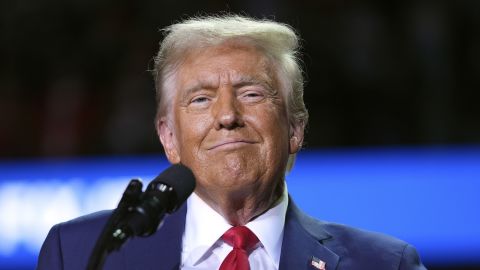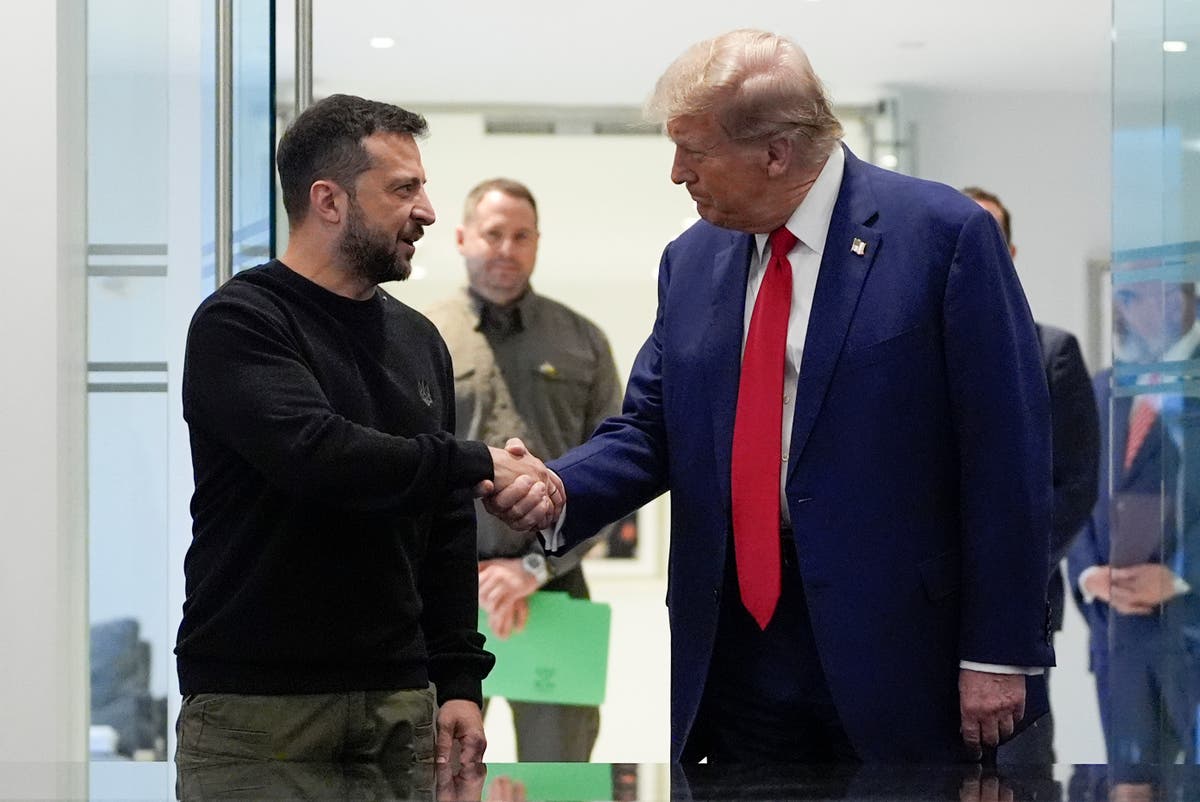
 In the latest developments regarding the ongoing war in Ukraine, former U.S. President Donald Trump has confirmed plans to speak directly with Russian President Vladimir Putin, even as President Joe Biden prepares a final surge of military aid to Kyiv in a bid to bolster Ukraine’s defense efforts against Russia’s invasion. This move highlights the ongoing division between Trump’s approach to international diplomacy and Biden’s commitment to continued support for Ukraine.
In the latest developments regarding the ongoing war in Ukraine, former U.S. President Donald Trump has confirmed plans to speak directly with Russian President Vladimir Putin, even as President Joe Biden prepares a final surge of military aid to Kyiv in a bid to bolster Ukraine’s defense efforts against Russia’s invasion. This move highlights the ongoing division between Trump’s approach to international diplomacy and Biden’s commitment to continued support for Ukraine.
Trump’s Statement Raises Eyebrows
Trump’s intention to reach out to Putin comes amidst increasing uncertainty over the direction of U.S. foreign policy, particularly in relation to Ukraine. In a recent interview, the former president claimed that he could bring an end to the war in “24 hours” by negotiating directly with Putin. Trump’s remark has garnered significant attention, particularly given the ongoing bipartisan support for Ukraine’s defense against Russia in Washington.
“I’ll call him. I’ll get him on the phone, and I’ll make a deal,” Trump said, during a campaign stop in Iowa. His comments were a reiteration of his previous claims that, under his leadership, the U.S. could leverage its position to force a ceasefire without further escalating tensions. Trump has long argued that his style of diplomacy—one that prioritizes strong personal relationships with world leaders—would allow him to end the war quickly, a stance he has maintained throughout his presidential campaign.
The former president’s comments also came amid increasing pressure from certain segments of the Republican Party to reduce U.S. military assistance to Ukraine. While some Republicans have voiced concerns about the long-term costs of supporting Ukraine, Trump’s approach raises serious questions about his broader strategy for dealing with Russia, and whether it could further destabilize the international order if he were to return to office.
Biden’s Military Aid Surge
In contrast, President Biden and his administration have doubled down on support for Ukraine, with plans to send a fresh round of military aid. The package, expected to be unveiled in the coming days, will include a variety of advanced weaponry, including air defense systems, ammunition, and artillery support. The Biden administration has maintained its commitment to helping Ukraine defend itself against Russian aggression, with the U.S. contributing billions of dollars in military assistance over the past 18 months.
The planned aid surge comes at a crucial time. Ukrainian forces have made significant gains in the eastern and southern parts of the country, though the war has entered a brutal and protracted phase. Experts warn that Ukrainian forces, despite their successes, are in dire need of more advanced weaponry to maintain the momentum and break through Russian defensive lines. The new military assistance from the U.S. is expected to focus on replenishing Ukraine’s stockpiles of artillery shells, providing additional air defense systems, and enhancing the capabilities of the Ukrainian navy.
The Biden administration’s position is that continued support for Ukraine is essential not only for the security of Europe but also for the broader international order. According to Secretary of State Antony Blinken, the U.S. is committed to “holding Russia accountable” and ensuring that President Putin does not succeed in his ambitions to reshape the European security landscape. Biden’s latest military assistance package, coupled with recent diplomatic efforts, underscores his administration’s belief that Ukraine’s success is integral to maintaining the stability of the post-World War II international system.
A Divided Republican Party
Trump’s proposed dialogue with Putin puts him at odds with key figures in his own party, many of whom support continued military assistance to Ukraine. The Republican Party, once firmly united behind the principle of supporting Kyiv’s fight, has become increasingly fractured on this issue. While hawkish Republicans like Senate Minority Leader Mitch McConnell and House Speaker Kevin McCarthy have continued to back military aid, Trump’s isolationist rhetoric has gained traction with a portion of the electorate.
Trump’s stance has found a particularly strong following among Republican voters who are disillusioned with U.S. involvement in foreign conflicts and who advocate for a more America-first approach to international relations. These voters argue that U.S. resources should be focused on domestic issues, and that military aid to Ukraine risks further entangling the U.S. in a conflict with no clear end in sight.
On the other hand, some foreign policy experts worry that Trump’s proposed dialogue with Putin could signal a dangerous shift toward appeasement. Critics argue that engaging with Putin without preconditions could embolden Russia and undermine Ukraine’s negotiating position. Former U.S. diplomats and military leaders have cautioned that a quick resolution to the war, as Trump suggests, might come at the cost of long-term geopolitical stability.
Trump vs. Biden on Ukraine
The contrast between Trump and Biden on the Ukraine conflict underscores the broader foreign policy divide in the U.S. In many ways, the war in Ukraine has become a symbolic battleground in the fight over America’s role in the world.
Biden’s strategy of continued military support, while widely backed by NATO allies, has faced increasing skepticism from some American voters who are concerned about the cost and the prolonged nature of the war. Conversely, Trump’s push for a negotiated settlement, while appealing to some parts of the electorate, risks alienating those who believe that Russia’s aggression must be decisively thwarted to prevent further territorial expansion and restore international norms.
As the 2024 presidential election looms, foreign policy—particularly the handling of Ukraine—has become one of the defining issues in the race. Trump’s decision to directly engage with Putin and his promise to bring the war to a swift end will undoubtedly continue to provoke debate, while Biden’s insistence on standing firm with Ukraine serves as a key part of his foreign policy legacy.
Global Implications
The developments in U.S. foreign policy will have wide-ranging consequences, not only for Ukraine and Russia but also for U.S. relations with its European allies, NATO, and other global players. As Trump eyes a return to the presidency, the world is closely watching how these competing visions for America’s role in global affairs will play out in the coming months. The outcome of the 2024 election may very well determine the future course of the war in Ukraine, and by extension, the future of global security in the 21st century.
As Biden prepares to ramp up military assistance to Ukraine, the international community is bracing for what could be a decisive moment in the ongoing war, while Trump’s bold claim to negotiate a resolution highlights the fundamental differences in how the two men view the U.S.’s place in the world order.
Leave a Reply